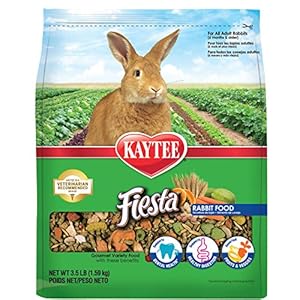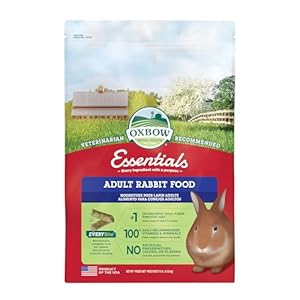Final Tuesday, Civil Eats held a digital salon specializing in a hotly debated matter: Meals costs and the 2024 election.
Who Spoke: Civil Eats’ Senior Employees Reporter and Contributing Editor Lisa Held moderated our dialog with professional panelists David Ortega, a professor and the Noel W. Stuckman Chair in Meals Economics and Coverage at Michigan State College; and Lindsay Owens, an financial sociologist and the manager director of the Groundwork Collaborative.
What’s at Stake
- Meals costs are up about 25 % since 2020.
- There’s been a pointy rise in meals insecurity. The most recent U.S. Division of Agriculture (USDA) data reveals:
- 13.5 % (18 million) of U.S. households have been meals insecure at a while throughout 2023.
- That’s up from 12.8 % (17 million) simply the yr earlier than.
The total discuss: Become a member today to entry the complete recording and invites to future salons—together with different advantages that include being a Civil Eats member.
What’s Driving Excessive Meals Costs?
- Dwindling provide plus rising demand, mentioned Ortega.
- A number of elements prompted provides to sink.
- Through the pandemic, individuals rushed into shops and cleaned out the cabinets, throwing suppliers right into a tailspin. Then, in 2022, Russia invaded Ukraine, resulting in a world scarcity of wheat, vegetable oils, and different grains. There have been additionally export restrictions on staples equivalent to palm oil, main to cost will increase.
- On high of this, important drought within the U.S. affected beef costs, and a multiyear avian flu impacted business poultry and eggs.
- All of those shortages prompted costs to spike.
In the meantime, What Brought on Demand to Rise?
- Fiscal stimulus funds made through the pandemic added extra money to the financial system. And, on the identical time, households amassed extra financial savings as a result of they weren’t touring or happening holidays.
- Now persons are spending, however there’s not as a lot to purchase—so the demand drives up costs.
Worth Gouging Additionally Components Into Excessive Costs
- Price gouging is when suppliers elevate costs by 10 % to 25 % or extra in periods of crises equivalent to a hurricane, energy outage, and different triggers available in the market.
- Almost 40 states have legal guidelines banning worth gouging, however there’s no legislation on the federal degree.
- Owens helps a federal ban on worth gouging. “I believe it’s another instrument that the federal authorities must forestall in opposition to this type of extractive catastrophe capitalism,” she mentioned. Ortega nervous the legislation may have unintended penalties.
- Worth fixing by means of corporate consolidation can be a difficulty, with firms becoming a member of up with different firms to set a worth.
- Owens mentioned, “I like to make use of a real crime metaphor: It requires means, motive, and alternative to commit the proper crime. The motive is fairly clear . . . firms are out to make a buck. The means is the power and size that these firms have been amassing for many years. However what adjustments is you lastly have that chance, beneath the quilt of inflation, to push more durable, quicker, greater, and longer for pricing. And that’s what we’ve been seeing within the grocery sector.”
The General Takeaway
Presidents even have little energy to have an effect on meals costs within the brief run. There’s a necessity to handle the basis causes of excessive costs, and there are methods our nation can do that:
- Take motion to verify our meals system is extra resilient to future shocks, together with these attributable to local weather, by taking steps like planting drought-resistant crop varieties.
- Strengthen the social safety net to verify meals is extra reasonably priced for everyone; help the Supplemental Diet Help Program (SNAP).
- Construct resilience within the supply chain–equivalent to buffer shares for grain—that will assist put together for the next disruption or emergency.
- Antitrust coverage is a critical tool to deal with consolidation over the long run. “In a world wherein now we have elevated competitors, now we have extra gamers within the house, and that may have good impacts on pricing,” Owens mentioned.
Studying and Extra
- “Beneath Trump, consolidated firms generally benefited. The Trump administration dissolved the USDA company tasked with regulating anti-competitive practices within the livestock, poultry, meat, grain, and oilseed industries. . . . The Biden administration made some makes an attempt to rein in consolidation. In 2022, for instance, President Joe Biden signed an executive order aimed toward creating extra aggressive practices, particularly in meat and poultry provide chains. Harris’s plans to go after “worth gouging” fall consistent with these initiatives.” — from Can Lawmakers Really Tackle High Food Prices? by Nick Bowlin
- Join right here for Civil Eats’ weekly newsletter–and be part of 1000’s of others who wish to maintain the heartbeat on meals programs reporting and evaluation.
- Civil Eats just lately eliminated our paywall—which suggests our reporting is free now to everybody, in all places, for no less than the subsequent yr. To maintain the tales free, we’d like your help. Become a Civil Eats member to help our work, and to remain within the loop about future digital salons.
The publish The High Cost of Groceries: Experts Weigh In appeared first on Civil Eats.
Trending Merchandise










